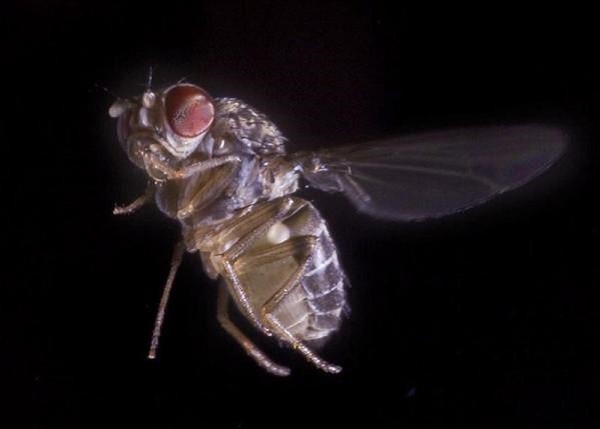While focusing studies on the neurological workings behind emotion Caltech researchers have discovered that fruit flies exhibit reactions similar to fear.
The question that prompted researchers according to the Christian Science Monitor (CSM) is that when a hovering fly encounters a waving hand to swat it, "what made the fly move and can it be out of fear?"
The basic structure of elements that contribute to the establishment of emotion like features in fruit flies, was identifides during the Caltech research study.
While scientists such as Professor David Anderson studied the neurological make up behind emotion, he and his team discovered that fruit flies when faced with shadows tended to shy away as if in a similar reaction to the emotion of fear.
The pioneering research institution's study was published this week in the Current Biology journal and suggested the findings had potential to improve understanding about human emotions.
While human and fly are neurologically very different, Anderson told CSM that fruit flies had a simpler neural mechanism that made it easier to understand the building blocks of emotion.
However, Anderson does acknowledge the pitfalls to this approach, but adds that the parallels between human emotion and what might seem as emotion in a fruit fly , can be compared using "emotion primitives."
He suggests that emotion in itself is capable of being deconstructed for the basis of research into elements know as what he terms as "primitives."
According to the study human beings and fruit flies tend to experience the same "primitives."
In the study scientists waved a paddle that resembled a shadow and used scientific devices together with a special programme to trace the movements of the flies.
The response was similar to movements that humans would exhibit. The flies would jump out of the way, freeze in position or enter a state of agitation.
Anderson remarked in a statement that the findings suggested that the responses were more complex than than reflex action of avoidance.
While researches do not suggest that flies share feelings of happiness or fear as humans do, the findings have made headway in the studies related to emotion.



























